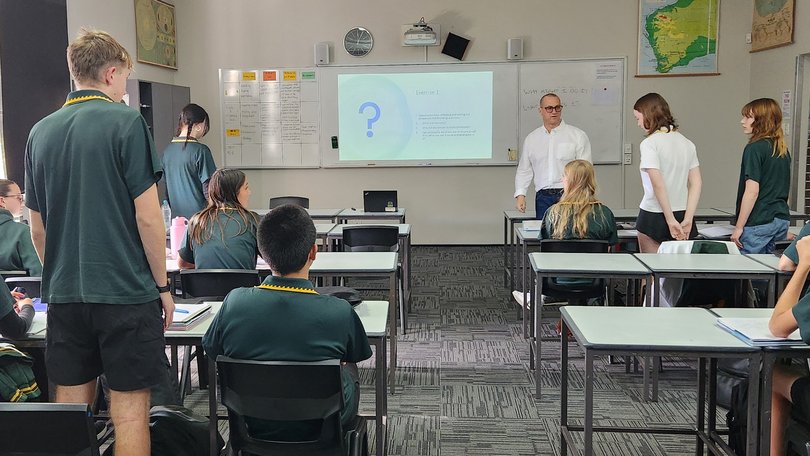Productivity Commission says teachers should be given better lesson plans to boost productivity, results

Teachers should be able to draw from a national database of lesson plans and support materials as they grapple with increasingly complex demands from students with a wide range of abilities.
The Productivity Commission says Australia must focus on addressing stagnation in school students’ achievements to make sure they leave with the skills they need to take on further education and be able to find jobs.
In the latest of its “five pillars” reports looking at tackling sluggish productivity, the commission says outcomes at schools are stagnating and more students are leaving school without “foundational skills” in reading, writing and maths.
Sign up to The Nightly's newsletters.
Get the first look at the digital newspaper, curated daily stories and breaking headlines delivered to your inbox.
By continuing you agree to our Terms and Privacy Policy.Teachers are spending too much time doing things unrelated to preparing for lessons despite working on average 52 hours a week, don’t always have access to materials to help them, and too many are having to teach outside their areas of expertise.
There’s also a big problem with the broad range of abilities of students in any one class, leading to a “challenging and complex” job for teachers to meet all their needs.
“The academic abilities of students in any one class is wide and teachers are under huge pressure to produce quality materials for all of them,” commissioner Catherine de Fontenay said.
“We need to give our teachers time and support to do the thing they do best – teach.”

The report concludes the best way to increase productivity in schools is to give all teachers easy access to high-quality lesson planning materials and advanced educational technology including artificial intelligence, such as chatbots.
At the moment, the resources available to teachers largely depend on where they are – some States (including WA) have centralised pools of resources, but not all, and access and quality can vary across sectors.
This has also lead to duplication in funding across States developing syllabuses and lesson plans.
The PC recommends the Commonwealth step in and set up a single platform where teachers across the country, in public and private schools, can access a full bank of high-quality lesson planning materials that cover components of the national curriculum.
It also says there should be a national approach to the use of technology.
This would better share the best innovations across all schools and help teachers tailor their teaching to the level of all students in their class, including those who are struggling.
Even modest improvements in student achievements would lead to big benefits for the nation down the track, with PC modelling showing boosting in NAPLAN scores between 1.4 and 4.3 per cent could lift GDP by 2 per cent in the long term.
Teachers called for better investment in schools, preschools, TAFE and education support staff at a discussion led by Education Minister Jason Clare on Friday, ahead of next week’s economic reform roundtable.
The Australian Education Union wants the government to set up a national commission for teaching, in line with a recommendation from the UN.
“We must urgently address teacher shortages and the unsustainable workloads facing the teaching profession and back Australia’s teachers with the resources that they need,” AEU federal president Correna Haythorpe said.

“Every student, no matter where they live or what their background, deserves access to a full range of senior secondary academic and vocational subjects that can open up their future work pathways.”
The PC’s skills and education report released on Sunday night also recommends that states dump licensing regimes for some jobs where there is little evidence that registration improves outcomes, including for mechanics and painters in WA.
At the moment, painters in WA must have a license if they’re going to do more than paint about two rooms on any job – a scheme the Commission says has no bearing on safety or quality and should be scrapped.
It also calls for smoother pathways in both directions between university and vocational education, and lower financial barriers for small and medium businesses that want to help their workers do training.
Jim Chalmers has received more than 900 submissions plus input from some 41 roundtable meetings held by ministerial colleagues ahead of next week’s mini-summit.
The Treasurer has cautioned people to temper their expectations and recognise the roundtable is most likely to result in broad reform directions for the government this term rather than lots of fully formed policies.

